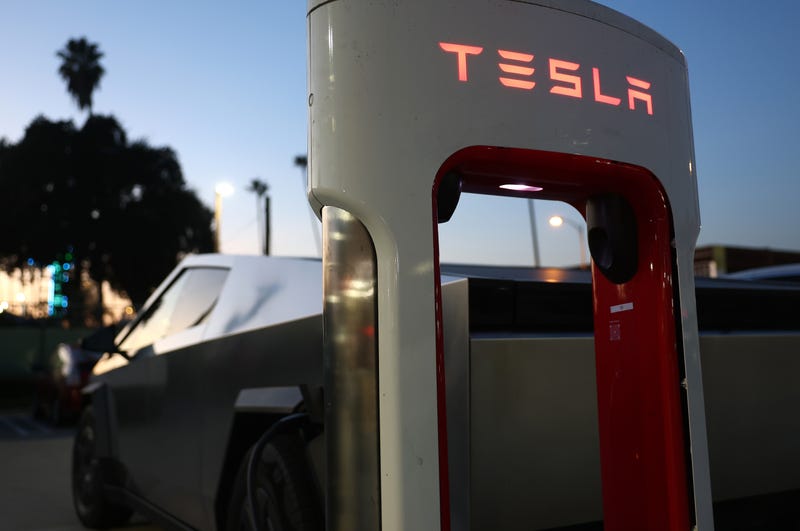
Buffalo, N.Y. (WBEN) - From electric vehicles to toothbrushes, lithium, a highly volatile metal, is a key material in today's society. However, what happens when it ignites, and how do fire departments deal with it?
Erie County Deputy Commissioner of Fire Safety, Chris Couell says that's something departments across the country are still trying to figure out.
"Any time that you have an electric vehicle that has lithium-ion batteries, and it goes into what we call thermal runaway, which is when the battery gets damaged enough that it takes off and creates an intense heat. You're not going to be able to put it out with conventional means," said Couell in an interview with WBEN.
A normal engine fire can be cooled down with water, but when a lithium battery ignites, like the one in the Cybertruck that exploded outside of Trump International Hotel in Las Vegas, water isn't effective.
"You're not gonna be able to keep that from burning, because it's in thermal runaway. It's not using an oxygen based fire like a normal fuel fire would be," Couell explained. "It's actually creating its own heat and ignition sources from the battery itself, and that's what causes those batteries to burn until there's no more fuel left. They basically have to burn themselves out. You can use a large amount of water to keep it under control. You're protecting the exposures around other buildings, other vehicles that are near a vehicle, like that, but you're definitely gonna have a harder time and need a lot more water to do that."
Couell says a lithium-ion fire can become extremely dangerous if it starts in an enclosed space, like a garage.
"We're not going to be able to put that fire out and stop it from spreading if it's inside of a structure. That structure is going to be affected by that," he said. "So that is where things are going to change with the way firefighters have to think about those types of fires. Can we isolate them? They have cooling Misting Nozzles. They have blankets that you can throw over vehicles or batteries to try to keep those fires at bay and try to protect the exposures. I think what we're going to find is that it may be safer to not have electric vehicles stored inside of the garage."
Couell notes that lithium-ion fires are rare occurrences, and manufacturers shouldn't be blamed when they do happen.
"They are something that's useful to society. There are a lot of people are backing a lot of science into this, and not every one of them is going to start a fire. It's just it's going to be a rare occasion, just like any other fire is. We just have to learn how to deal with that as firefighters, as we do our training to learn to deal with what is, what's facing us and how we're going to mitigate those situations," Couell said.
